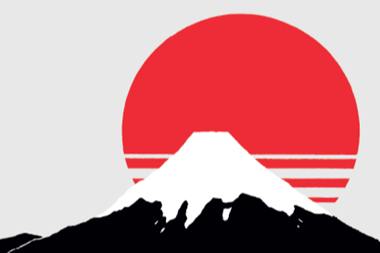The Government Pension Investment Fund of Japan (GPIF) yesterday announced suspension of stock lending on its multi-billion dollar foreign equities portfolio in a move to better “fulfill its stewardship responsibility”.
The decision by the world’s largest pension fund will have an immediate global impact on short selling, which relies on stock lending or borrowing to do immediate trades on-market.
At the end of Q2 2019, foreign equities made up more than ¥41 trillion (€341bn) or 25.53% of GPIF assets under management. GPIF had assets totalling ¥161.8trn (€1.34trn) under management at 30 September.
According to its most recent annual report, stock lending netted GPIF US$300m in fees over the three years to 2018.
GPIF first agreed to requests from asset managers of foreign equities, especially those of stocks in emerging countries, as a way of managing the high cost involved in trading in emerging markets in 2014, a spokesperson told IPE.
However, she said that, as GPIF strengthened its stewardship activities, it reached a conclusion to suspend lending in foreign equities.
In its statement, the fund said: “As part of its stewardship responsibilities, GPIF requires its asset managers to enhance the long-term value of investee companies by conscientiously exercising voting rights for all the shares they hold.”
It said engagement with investee companies should not be limited to annual general meetings but held throughout the year.
“Stock lending, which GPIF currently conducts over the course of fund management, results in a temporary transfer of ownership rights to the borrower,” it said.
This effectively creates a gap in the period in which the stock is held by GPIF, and can be considered to be inconsistent with the fulfillment of the stewardship responsibilities of a long-term investor.
“In light of this situation, we [have] decided to stop stock lending, until further notice. The suspension does not affect domestic stocks or foreign bonds. GPIF left the door open to lifting the suspension,” the document read.
“In the future, if transparency is to be ensured and the above issues, as expected, are improved, the stock lending scheme will be reconsidered,” GPIF said.
It said stewardship responsibility was born out of a necessity to protect investment returns over the long term.
As a “super-long-term investor” and a “universal owner” who invested across the capital market, GPIF saw a role in preventing activities that hindered the long-term growth of its investee companies, GPIF continued.
“GPIF will contribute to the sustainable growth of the market.”
GPIF’s investment policy was embedded into ESG principles, and GPIF, as a global leader in enforcing ESG principles, monitored its investments for its ESG compliance closely, GPIF said.
According to its operation policy, GPIF said, “external asset managers shall not participate in pump-and-dump or cornering and also shall not make investments to control investee companies”.
The policy prohibits external asset managers from dealing with margin trading – buying on margin and short selling.
It says these managers should also “avoid situations where frequent transactions of securities would increase transaction costs and decrease the investment return net of the costs”.
The operation policy also applied to what GPIF termed “transition managers”, who were now also prohibited from margin trading.











